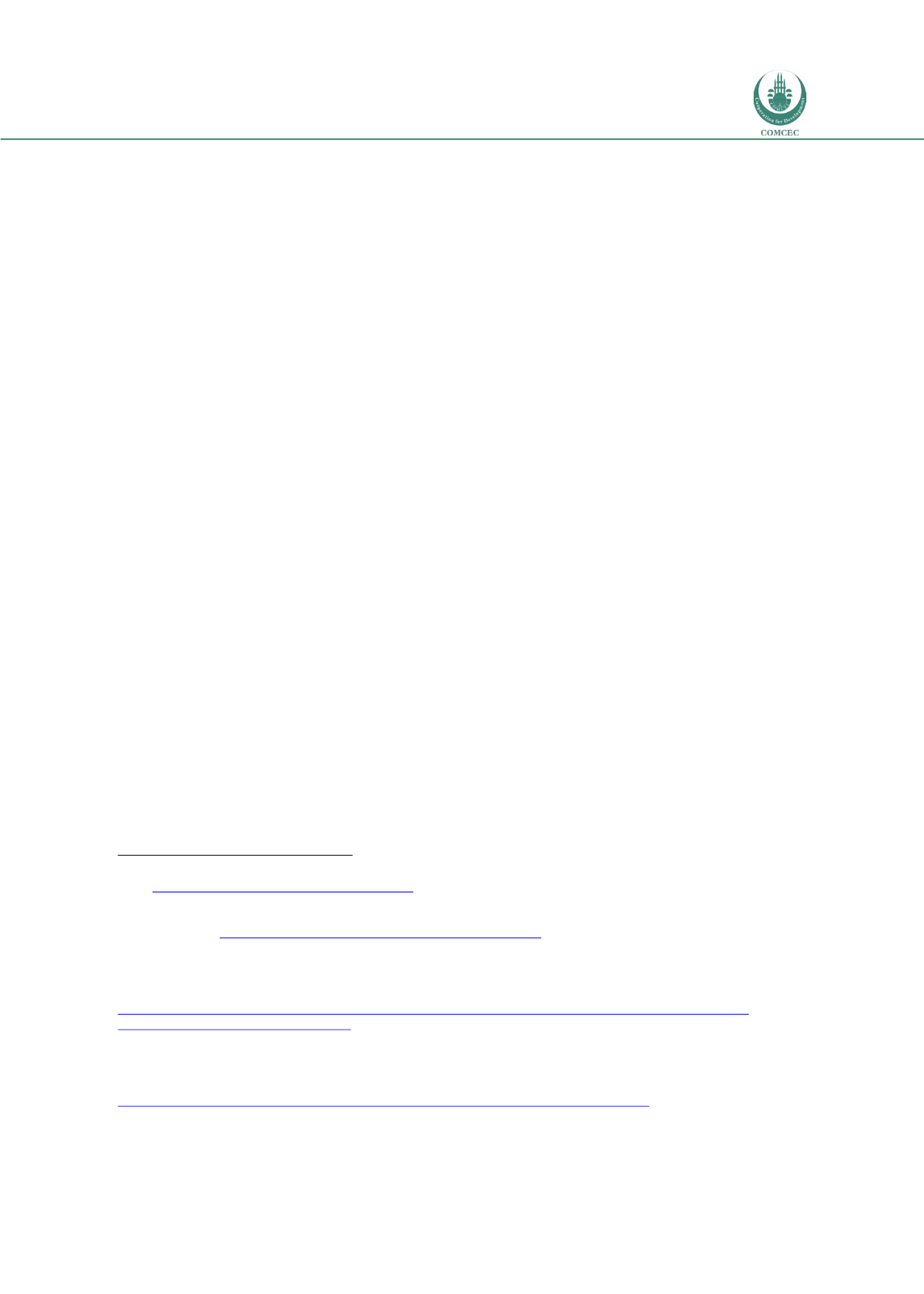

Forced Migration in the OIC Member Countries:
Policy Framework Adopted by Host Countries
125
the decree n 5-2014 of January 21, 2014, mandated that all migrant children (regardless of
legal status) have access to primary and secondary schools.
380
MCMREAM also launched a
pilot program in October 2015 designed to provide over 7,000 children of migrants with
tutoring, language, and culture classes.
381
Despite the attention given to this issue, UNHCR has
reported that they must sometimes act as a mediator when certain schools claim they are not
aware of the law providing migrant children with access to education, although most of the
time no further problems are reported.
382
One of the largest barriers to the integration of migrant children into the education system is
the bilingual nature of most Moroccan schools. Classes are often taught in both Arabic and
French, providing a barrier to migrant populations who may only speak one or the other and
creating even greater integration challenges for populations lacking experience in either
language. While most parents opt to place their children in the public education system as it is
free of charge, some (mainly West African) migrants choose to place their children in private
schools due to the more prominent use of French in such institutions, allowing for easier
integration in addition to the perceived greater safety and quality of private schools.
383
Parents also cite the Moroccan curriculum’s inclusion of religion classes as an issue of concern,
claiming that it presents a further barrier to their children’s integration in schools.
384
To facilitate integration, informal bridge classes are offered to migrant children before formal
school begins. UNHCR works with FOO to provide such services, offering assistance through
the school registration process, tutoring, and language classes in Arabic and French.
385
UNHCR
also provides school supplies to refugee children and covers their transportation costs.
Through working with both children and teachers, organizations such as Caritas and FOO seek
to instill an educational approach centered around intercultural coexistence, in order to create
a welcoming environment for migrant and refugee children.
386
For adolescents whose
integration needs are more difficult to meet, some associations have begun creating limited
programs to enroll them in non-formal education or vocational training programs.
387
Despite these programs, integration is still hindered by greater structural problems in the
Moroccan educational system. Public schools in particular tend to be overenrolled, with an
average of 45 students per class.
388
This makes it difficult for educators to provide children,
especially those with specialized needs such as refugees, with the particular attention they
require.
389
Additionally, geographic disparities in the quality of education systems often place
migrants who live outside of major cities at a disadvantage, as language classes and other
380
Conseil de la Communauté Marocaine à l’Étranger, “Circulaire: Le Maroc ouvre ses écoles aux migrants,” November 4,
2013
, http://www.ccme.org.ma/fr/actualites/33109 .381
Conseil de la Communauté Marocaine à l’Étranger, “Ouverture à Rabat des cours des classes du soutien éducatif et de
l’enseignement des langues et de la culture marocaine au profit des enfants des migrants et réfugiés résidant au Royaume,”
October 12, 2015
, http://www.ccme.org.ma/fr/medias-et-migration/45876 .382
Interview conducted by Natalia Banulescu-Bogdan, Rabat, March 2016
383
Some migrant associations have been able to lobby public schools so that migrant children will be offered free education
at such institutions. Tamkine Migrants
, Les enfants migrants et l’école marocaine: Etat des lieux sur l’accès à l’éducation des
enfants migrants subsahariens au Maroc
, (Agadir, Morocco: Association Oum El Banine, 2014), 23-24,
http://resourcecentre.savethechildren.se/sites/default/files/documents/rapport-les-enfants-migrants-et-lecole- marocaine_tamkine_migrants_v_finale.pdf .384
Tamkine Migrants,
Les enfants migrants et l’école marocaine
385
The Centre d’Accueil of Caritas also offers a similar program. Tamkine Migrants,
Les enfants migrants et l’école marocaine
,
21-22
386
Ségolène Dargnies, “Aux côtés des migrants sur les bancs de l’école,”
L’économiste
, April 8. 2016,
http://www.leconomiste.com/article/996272-aux-cotes-des-migrants-sur-les-bancs-de-l-ecole .387
Dargnies, “Aux côtés des migrants sur les bancs de l’école”
388
Tamkine Migrants,
Les enfants migrants et l’école marocaine
, 27
389
Tamkine Migrants,
Les enfants migrants et l’école marocaine
, 27
















